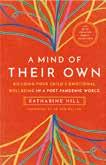WAR CRY


Can DCI Amy Silva fathom submarine mystery in BBC series?





Can DCI Amy Silva fathom submarine mystery in BBC series?


The Salvation Army is a Christian church and registered charity providing services in the community, particularly to those who are vulnerable and marginalised. Motivated by our Christian faith, we offer practical support and services in more than 700 centres throughout the UK to all who need them, regardless of ethnicity, religion, gender or sexual orientation. To find your nearest centre visit salvationarmy.org.uk/find-a-church
The Salvation Army first published a newspaper called the War Cry in London in December 1879, and we have continued to appear every week since then. Our name refers to our battle for people’s hearts and souls as we promote the positive impact of the Christian faith and The Salvation Army’s fight for greater social justice.
Editor: Andrew Stone, Major
Deputy Editor: Philip Halcrow
Production Editor: Ivan Radford
Assistant Editor: Sarah Olowofoyeku
Staff Writer: Emily Bright
Staff Writer: Claire Brine
Editorial Assistant: Linda McTurk
Graphic Designer: Rodney Kingston
Graphic Designer: Mark Knight
Email: warcry@salvationarmy.org.uk
The Salvation Army UK Territory with the Republic of Ireland
101 Newington Causeway
London SE1 6BN
Tel: 0845 634 0101
Helpline: 020 7367 4888
Subscriptions: 01933 445445 (option 1, option 1) or email: subscriptions@satcol.org
Founder: William Booth
General: Brian Peddle
Territorial Commander: Commissioner Anthony Cotterill
Editor-in-Chief: Major Mal Davies
Published weekly by The
FOR 70 years, dum-de-dum-de-dum-de-dum, a tune properly known as ‘Barwick Green’, has signalled the start of Radio 4’s The Archers – the world’s longest-running continuous drama.
This everyday story of country folk started life as an educational drama to help farmers maximise their productivity in postwar Britain. But in the years since, the soap’s storylines have included sudden deaths, domestic abuse and discrimination as well as agricultural problems such as foot-and-mouth disease.
One character who has suffered her fair share of life’s ups and downs is Emma Grundy – as the actress who plays her, Emerald O’Hanrahan, says in this week’s War Cry.
‘A standout storyline for me was when Emma and her husband Ed were saving for their own home for so long,’ she tells us. ‘Then it all fell apart in quite a spectacular way. Everything was crumbling, and Emma had a breakdown.’
Emma’s storylines have had listeners gripped for years. But there is no entertainment value when people face challenges in real life and find parts of their lives crumbling.
Over the past 18 months many people, young and old, have struggled with the pressures and challenges that the Covid-19 pandemic has brought. Many children, in particular, experienced mental health issues as their lives were disrupted by school closures.
In this week’s War Cry, Katharine Hill, the UK director of Christian charity Care for the Family, describes how the emotional wellbeing of children can be supported.
‘We need to recognise the things our children are good at and the qualities they have,’ she says, before adding that we must ‘steer clear of the doom-and-gloom narrative’.
If we can bring positivity to others, it won’t automatically make their problems and pressures disappear, but it may help them to cope with the dramas that even everyday life sometimes brings.

Walstead Roche Ltd, St Austell, on sustainably sourced paper

Your local Salvation Army centre




TV preview by Emily Bright
AMYSTERIOUS shadow pops up on the radar of a Scottish trawler. Soon after, its fishing lines are dragged underwater. The boat descends into the deep as the fishermen fight for their lives. So begins new thriller Vigil, which launches its first episode today (Saturday 28 August) on BBC One.
Submerged in a nuclear submarine, HMS Vigil, Chief Petty Officer Craig Burke (Martin Compston) detects the trawler’s sinking on sonar. He is deperate to save the lives of the fishermen, and appeals to his senior officers to intervene. But they want to protect the submarine’s secret location, so refuse to aid those on the ailing vessel.
Minutes later, one of the submarine’s crew members unexpectedly dies.
Detective Chief Inspector Amy Silva (Suranne Jones) is called to report for duty and learns that she will be investigating the death. She is assigned to HMS Vigil for three days to interrogate crew members and discover what happened. Silva is assisted by her colleague, Detective Sergeant Kirsten Longacre (Rose Leslie), who pursues her own lines of enquiry on land.
serving on the submarine unwilling to dredge up the truth of what has happened.
Crew members are reluctant to collaborate with Silva, fearing the wrath of their superiors. The spectre of a scandal lingers over the submarine, but everyone is afraid to confront a truth that could darken the reputation of HMS Vigil

Silva relies on her trusted sergeant to provide answers. Because their conversations are being monitored, they resort to coded communications, not knowing who they can trust. Uncovering the truth will prove tricky – as is often the case when any of us look beneath the surface of our everyday life.
Uncovering the truth will prove tricky
As time goes on, Silva suspects foul play and murder. But her investigation is obstructed at every turn, with those
It can be difficult to know who to trust, and to distinguish between what is true and what is false.
Sometimes, the foundations of what we believe to be true can crumble underneath us, or those that we trust can let us down. In such times, it can be difficult to know what to anchor our lives in.
Through the passage of time, many people have found the solution by turning to an infallible friend: God.
Chief Petty Officer Craig Burke (Martin Compston) wants to help a trawler in crisis
In the Bible, one writer reflects: ‘Every word of God proves true; he is a shield to those who take refuge in him’ (Proverbs 30:5 English Standard Version). The writer recognises that God is a rock on which everyone can rely.
Those who read the words of God recorded in the Bible will discover the truth of his unconditional love, reliability and faithfulness. He is always there for anyone who seeks him.
If we let him, he will help us navigate our struggles. When we feel like sinking under the weight of our circumstances, he will be there to buoy us up.

‘I PROBABLY wouldn’t be alive right now if it wasn’t for Jesus,’ said Hollywood star Letitia Wright in an interview with the Independent.
The young actress, who played Shuri in Black Panther and has most recently starred in Channel 4 drama I Am Danielle, explained that her faith helps her get through situations.
‘The world is so fickle and there’s not much you can put your hope in to make you feel whole… It’s been beautiful to have my faith in Jesus, which is worth more than anything.’
In the article, Letitia commented that, although some people have advised her not to speak about her faith, it is something she feels compelled to do.
‘There will always be pressures to keep things private that the world may not agree with,’ she said. ‘I’m not trying to force anything on anyone.
I’m sharing my truth because I probably wouldn’t be alive right now if it wasn’t for Jesus, I probably wouldn’t have been able to cope. And if someone saves you and brings light and love to your life, you want to share that. You don’t want to hide it.’



MORE than 50 churches – including Sir Christopher Wren’s St Stephen Walbrook (pictured) – will take part in the Open House London Festival, which runs from Saturday 4 September.
The annual celebration of the capital’s architecture will feature a variety of in-person and online events, including guided tours, general access visits and children’s activities.
After the Great Fire of London in 1666, Wren designed and helped to rebuild more than 50 churches in the City of London, including St Stephen Walbrook.
The church, Wren’s own parish church, has a classical dome which was his prototype for the dome of St Paul’s Cathedral. It is also the birthplace of suicide prevention charity Samaritans, which was founded by Anglican priest the Rev Dr Chad Varah as part of a social outreach programme that the people of the church ran in the 1950s.


YOUNG people ‘docked’ a giant handmade boat in front of St Paul’s Cathedral as part of its journey from Cornwall to Glasgow in support of climate justice.
Walking in relay, the young people are aiming to highlight the need for the decisions that will be made at November’s Cop26 climate conference in Glasgow to ‘protect people not bank balances’. The initiative is led by Young Christian Climate Network and supported by a number of other Christian organisations, including The Salvation Army, Christian Aid and Tearfund. The relay boat was ‘launched’ from the G7 summit host location, St Ives, in June. The young walkers are about halfway through their pilgrimage to Glasgow, having trekked from Cornwall through several cities, including Exeter and Salisbury. Their journey will take them to a number of other English cities and then Edinburgh, before arriving in Glasgow in time for the conference.
EMERALD O’HANRAHAN talks about the fun of being in Radio 4’s long-running soap The Archers and how she has dug deep into her faith to face real-life challenges
Interview by Emily Bright
FOR 70 years, listeners of Radio 4’s drama The Archers have followed the peaks and troughs of life in the fictional farming village of Ambridge.
First broadcast on 1 January 1951 to spread farming tips on boosting productivity amid food shortages and rationing, The Archers became a staple for millions of listeners. It has now aired more than 19,000 episodes, making it the world’s longest-running serial drama. After having its schedule hit by the Covid-19 pandemic, the programme recently began broadcasting five episodes a week and hopes to return to its yield of six a week as soon as it is safe to do so.
Emerald O’Hanrahan plays Emma Grundy in the show, a mother and wife who works in the village’s tearooms. Having been an ‘avid listener’ herself, Emerald describes the programme as an amazing institution.
‘I love it,’ she says. ‘It feels informal and like a family once you’re inside it. Sometimes you’re having so much fun. You do your prep work at home with the scripts, and then – in normal times – you turn up for a read-through in the green room and then do each scene.
‘It’s easy to forget that there are millions of listeners all over the world. You do have to forget about that, because otherwise it would be cripplingly nerve-racking!’
Ploughing through plotlines for 70 years is no mean feat. Emerald shares her view on how the drama – billed as an everyday story of country folk – has been able to reap radio acclaim.
‘A lot of TV soaps have to be heightened, and something has to happen, with the whole denouement in a couple of months. Whereas The Archers can drop little seeds which can slow
Turn to page 6 f

It’s easy to forget that there are millions of listeners
From page 5
burn. It’s very real.
‘The Archers is close to life, and the characters can feel like members of your family, members of your community.’
Emerald sees radio drama as being distinct from TV and film in that listeners can make pictures in their mind’s eye which are ‘far better than any budget could dream up’.
She adds that audiences can also stumble across ‘little masterpieces and one-off jewels’ in the Radio 3 and Radio 4 schedules that can ‘deal with taboos and things you wouldn’t necessarily think about or examine otherwise’.
Emerald’s Ambridge adventure began in 2010, when she received a phone call.
‘One of the executive producers at The Archers said that they

were looking to recast Emma Grundy,’ she recalls. ‘She sent me a couple of omnibus programmes on CD, and I listened to them non-stop for a couple of weeks.’
After an audition in London, Emerald landed the job, taking over the reins from Felicity Jones.
She sums up Emma Grundy as a woman with ‘a wild past’, but who is now very committed to her family, her kids and her village.
‘I love how she says everything as it is yet how emotionally intelligent she is, helping people when they’re low,’ Emerald says. ‘And I love how she strives for the best in all spheres.’
Emma has been through the mill over the years, navigating a love triangle, divorce, witnessing a traumatic accident and facing financial hardship.
Emerald remarks: ‘A standout storyline for me was when Emma and her husband Ed were saving for their own home for so long. Then it all fell apart in quite a spectacular way. Everything was crumbling, and Emma had a breakdown. I just thought that whole storyline was so beautifully written.
‘A few years before that, we had a food-bank storyline. Emma was dealing with tough decisions about whether she would eat or whether her children would. Again, that was handled so well. The writers and the runners of the show talked
to charities to make sure that everything was properly backed up and based in reality.’
Emerald is no stranger to real-life drama, having gone through a family illness and bereavement that would alter her perspective on life. Over the years, she has had an evolving relationship with her Christian faith. She grew up as a Catholic, but she drifted away from the church as a teenager.
‘I would always go into churches and light candles and go to Mass at big times of the year,’ she remembers. ‘But I didn’t feel connected to the community.’
So Emerald found a spiritual home elsewhere.

Jesus and love. And that was incredibly powerful.
‘We had a lot of conversations about faith. His approach to dying and living with that illness was so inspiring.’
During that period, Emerald felt that she and her father were supported and comforted by God. From that time onwards, her belief in God blossomed, and she began attending a church.
I enjoyed the quietness and connecting to God
‘What kept my connection to faith and God was Quakerism. I used to go to Quaker meetings quite a lot, and I loved their gentle, non-pressuring, doing good things, welcoming people and being quiet.
‘That quietude allows the Holy Spirit to move you to do what needs to be done. And I loved that direct experience with the Spirit that I got there.’
A few years ago, she returned to her Catholic roots.
‘The catalyst for that was my dad getting very sick,’ she says. ‘He was Catholic. When he was very sick –unfortunately he passed away from the illness – he became so sure of his faith, and how it was not about anything except
Her faith has also anchored her through the stresses and strains of the pandemic. When the Covid-19 outbreak began, Emerald and her husband, actor Martin Delaney, decided to create their own prayer space around a bookshelf in their living room.
‘As soon as the pandemic happened, we removed books from the middle shelf, and put things that meant a lot to us on it, and two prayer cushions in front of it.
‘It kept us going all through lockdown, having a space that we could go to every day – individually and together – to pray, read the Bible and live-stream Mass when we could.
For Emerald, it offered ‘a sacred space that we could be in. I enjoyed the
quietness, anchoring and connecting to God.’
Particular passages of Scripture stood out to her in the early days of the pandemic.
‘Back then, everything felt so scary, and I read a lot of psalms. I’d always loved the Book of Psalms. Psalm 23, “The Lord is my shepherd”, is beautiful. At our wedding, we had a psalm about “coming to the Lord, shouting with cries of joy”.
‘But I’d never found so much meaning in the Psalms as I did last year. I turned to the anguished ones that I think I’d tried to avoid in the past.’
The Psalms channelled how she was feeling.
‘I was so afraid but also angry,’ she says. ‘I felt people were not being looked after properly, and people I knew in the NHS were struggling. During that time, it was brilliant to find songs that were thousands of years old, where people had been feeling the same and crying out to God.
‘And that’s what the Bible can do,’ says the actress who week by week explores the highs and lows of everyday life in radio’s longest-running drama. ‘It puts words to how you feel.’

THE world’s largest civilian hospital ship has set sail. Global Mercy, the newest vessel and first purposebuilt ship belonging to international health charity Mercy Ships, is expected to facilitate surgery for more than 150,000 people over its 50-year lifespan.
Since Mercy Ships began in 1978, it has carried out medical missions in more than 50 nations, providing services worth £1.2 billion and helping 2.8 million people.
Global Mercy will enable Mercy Ships to increase its impact. Jim Paterson, marine executive consultant for the ship’s construction project, tells me how it came to be.
‘Our former ships have all been conversions – we’ve taken existing ships and built in a hospital. With conversions, there’s always a compromise. There are certain things you can’t move and you just
Construction
has recently been completed on the first hospital ship that has been purpose-built for global health charity Mercy Ships. JIM PATERSON, who has been overseeing the project, explains the ship’s purpose and why he and other volunteers spend months docked up to help people in need
Interview by Sarah Olowofoyeku
have to live with them. In 2007, when we were finishing the conversion project of our current ship, Africa Mercy, a few of us started to dream of how it would be nice to build a hospital ship from scratch and make it the way we wanted it. We started to sketch out ideas and came up with a basic concept.
‘In 2010, the board decided to pursue the idea.’

imposed. I couldn’t get back to China for a while, and once I did, I had to stay there for 10 months until we were finished.’
We want to make a country’s healthcare service better
A contract was signed with Swedish shipbuilders Stena RoRo in 2013, and construction began in China in 2016.
‘We had a full site team on the ground in China,’ says Jim. ‘I would travel back and forward for meetings. But then Covid struck, and I came back on the last flight into the US before restrictions were

The construction of Global Mercy was completed in June this year, and it is due to dock in Senegal early next year to meet its first patients. The 37,000-tonne ship has 12 decks and is equipped with 6 operating theatres, hospital beds for 200 patients, a full laboratory and simulation training areas.
Jim explains how the charity’s two ships, Africa Mercy and Global Mercy, will operate.
‘Outside of the pandemic, we have been working primarily in west Africa because that’s where the biggest need is. The model is to spend 10 months in one nation.
‘We specialise in certain types of surgeries: cataracts, repair of cleft lips and palates – which are the third most common defect in the world – orthopaedic surgeries, tumours and fistula repair. The idea is that we have local health workers come and work with our teams for a few months to improve their skills too. We want to make a country’s healthcare services better. Our job is to work ourselves out of a job, but it’s going to take a while to do that.’
In the meantime, volunteers from all over the world travel to spend anything from a month to five years on a ship. Those on board are not only medical staff, but also schoolteachers, chefs, HR staff and engineers.
While Jim now works on land, overseeing various operations, he also started out as a volunteer engineer on board.
‘I’ve been working on ships since 1973,’

he says. ‘I was an engineer, and went to sea after I left school. I was doing very well and was getting promoted fast, but there was something missing.
‘My girlfriend at the time – now my wife – became a Christian and told me about it. I thought she’d gone crazy, but shortly after that, I became a Christian. We both decided that we needed to do something different. So we ended up going to Bible college, and we heard about Mercy Ships while we were there. We thought it was an opportunity to put our faith and practical skills together to help other people. So my wife worked in the school on board and I worked in the engine room.’

Jim’s journey with Mercy Ships has taken him from the north of England to countries around the
world, including Mexico and China, and now the US, where he lives. Along the way, he says, he has learnt more about the quality of compassion referenced in the charity’s name.
‘Mercy has changed my life,’ he says. ‘It continues to keep me aware of other people’s needs rather than focus on my own, and the Lord takes care of my own needs in the process.
‘Everyone who volunteers has a motivation to help other people,’ he adds.
‘The majority of volunteers are Christian and have a desire to serve God in some way. I think that’s what makes it all work. We’re focused on helping people, rather than arguing about solving problems.
Some people have said it’s a United Nations, because we have about 40 different nationalities at any one time, with a common purpose to help folks.
‘We use the gifts and talents God has given us to show love and compassion to the people we come across. We show mercy in practical ways.’


KATHARINE HILL of charity Care for the Family describes how parents can support the emotional wellbeing of their children
Interview by Claire Brine
‘EVERY week, it seemed, I was reading newspaper headlines about young people experiencing mental health difficulties,’ says Katharine Hill, the UK director of Christian-based organisation Care for the Family. ‘There are so many pressures on young people today, which has led to rising levels of anxiety. And the pandemic has made things a lot worse.’
One of the biggest pressures facing young people, Katharine says, is school. Exams can be stressful at any time. Not knowing if they are going to be cancelled or not, because of Covid-19, has been equally troubling for schoolchildren.
‘Then there’s the digital world with its image-heavy platforms, encouraging children to measure their worth by the number of “likes” they get. There are also global issues, such as climate change and Black Lives Matter, which are concerning our young people. Even before 2020 came along, I knew I needed to write a book for parents who wanted to help their children build emotional resilience.’
Katharine begins A Mind of their Own: Building Your Child’s Emotional Wellbeing in a Post-Pandemic World by exploring the subject of success, aiming to help parents whose children are struggling to cope with academic pressure.
‘Some parents have high-achieving, perfectionist children who are very selfcritical,’ she tells me. ‘Often these children base their self-worth on how well they

perform academically, so if they drop a few marks in an exam, they go into a complete meltdown.
‘Then there are parents whose children aren’t academic at all, and it’s a struggle to get them to even open their school books.
‘In both cases, parents can adopt a technique called “process praise”, which is about celebrating the effort that a child makes, and not just the result. In our family, we made the point by going out for pizza before any exam results came out. Such encouragement can help a child’s emotional wellbeing.’
releasing them from this pressure to be extraordinary.’
Over the past 18 months, pressure on young people has only increased as they have come to terms with Covid-19 and its devastating consequences. Katharine considers the impact of the pandemic on children’s mental health.
Not everyone can be a winner
While school work is important for children, Katharine emphasises ‘the best A* grade has to be in emotional health’.
She says that ‘looking beyond the narrow academic route, we need to recognise the things our children are good at and the qualities they have. Are they kind? Do they look out for others? Those are the things that are really important.’
Another chapter in Katharine’s book considers the idea that ‘it’s OK to be ordinary’. She tells me: ‘Programmes such as Britain’s Got Talent give out the message that everyone has to be special and a winner. But not everyone can be a winner. Our culture has made “ordinary” sound boring. And that’s not true. Our job as parents is to encourage our children to be the best they can be, while also
‘It has been so big,’ she says. ‘Nurseries and schools with young, vulnerable children have reported that, in some cases, language and communication skills have suffered, and some children are no longer potty-trained or able to use cutlery. A lot of them are finding it hard to concentrate.
‘Teenagers have also found it hard, because this was when they were meant to be out and about, discovering their identity away from home. Instead they were holed up with their parents. Some of them now have fewer friends, because it has been impossible to keep up with everybody online. Not being able to have face-to-face conversations has been difficult.’
Such experiences have led to feelings of disappointment, isolation and frustration. For parents, it can be tough to help young people cope with their emotions.
‘While parents may feel that having a teenager in the house is a bit like living with a smouldering volcano, it’s important
for young people to have a healthy way of expressing their feelings,’ says Katharine. ‘Parents can help with this by being good role models themselves, naming emotions as they come up rather than brushing them under the carpet. Children need to know that it’s OK to be sad when sad things happen. They also need to see their parents managing their own emotions well by going for a run or having a lie-down to relax when things get stressful.’
Although Katharine acknowledges the sadness, difficulty and loss young people have faced in recent months, she remains hopeful about their future.
‘We need to steer clear of the doomand-gloom narrative and look for the opportunities,’ she says. ‘We don’t call the children of the Second World War “the lost generation”. We think of them as resilient and stoic. In the same way, with the right support, children of today can come through the coronavirus pandemic and be even stronger than before.’ l A Mind of Their Own is published by Muddy

Pearl
THE War Cry invites readers to send in requests for prayer, including the first names of individuals and details of their circumstances, for publication. Send your Prayerlink requests to warcry@salvationarmy.org.uk or to War Cry, 101 Newington Causeway, London SE1 6BN. Mark your correspondence ‘Confidential’.
There is no set formula to becoming a Christian, but many people have found saying this prayer to be a helpful first step to a relationship with God
Lord Jesus Christ,
I am truly sorry for the things I have done wrong in my life. Please forgive me. I now turn from everything that I know is wrong.
Thank you that you died on the cross for me so that I could be forgiven and set free.
Thank you that you offer me forgiveness and the gift of your Holy Spirit. Please come into my life by your Holy Spirit to be with me for ever.
Thank you, Lord Jesus. Amen

IT’S only natural for Princess Beatrice and her husband Edoardo Mapelli Mozzi to think about the arrival of their first child and wonder which of them he or she wiil look like most. But, according to Hello! magazine, the royal couple are also wondering whether their baby – due in the autumn – will take after them by developing dyslexia. It’s a condition that both parents live with, and is thought to run in families.
The Queen’s granddaughter told the magazine that, in her experience, having the learning difficulty was never a ‘lesser than’ scenario.
‘It was always about what you could do,’ she said. ‘Never about what you can’t.’
Beatrice went on to explain that she wanted to change the narrative on dyslexia, because it is limiting to see it as a negative condition which affects people’s reading, writing and spelling.
It was always about what you could do
‘Even referring to it as a diagnosis I feel does a disservice to the brilliance of some of the most fantastic minds that we have,’ she said.
A bit of googling reveals that some of the ‘fantastic minds’ whose dyslexia hasn’t held them back include Steven Spielberg, Muhammad Ali and Keira Knightley. Even Albert Einstein is believed to have lived with the condition.
On another occasion this year when Beatrice spoke out about her dyslexia, she revealed that while she had ‘wished it away’ as a child, she now saw it as a ‘tremendous gift’.

It’s a perspective I find interesting. I suppose there are lots of experiences that we go through and, at the time, wish we didn’t have to. Life can be hard, and many of us want it to be easy. But I also know in my own life that some of the most painful circumstances have led to beauty that I couldn’t have imagined. I would never have chosen for my dad to die when I was a teenager, but as a result of his death I grew even closer to my mum, sharing honest conversations with her that I would not change for the world.
When life is unpredictable and appears unkind, I hope we have the courage to look for another perspective. Because we don’t want to miss out on finding a tremendous gift.




When are diurnal animals active?
In what year did the Duke and Duchess of Cambridge get married?
Which rock band reached No 1 in the album chart with OK Computer in 1997?
From which ancient language does the phrase ‘modus operandi’ come?
Who is the captain of the Scotland men’s national rugby union team?
Who played lonely scientist Augustine in the post-apocalyptic film The Midnight Sky, released on Netflix last year?


AFTER our son made his entrance into the world 17 years ago and my wife and I named him Aaron Burr, we were vaguely aware that he would forever share the name of an obscure vice-president from US history. And that was the case until December 2017, when Hamilton, a new musical by Lin-Manuel Miranda, opened on the London stage and propelled Aaron Burr into the spotlight.
This fast-paced, energy-filled stage show tells the remarkable story of Alexander Hamilton, an American founding father and the face on the $10 bill. The role played by my son’s namesake is made clear in his opening lines: ‘And me, I’m the damn fool who shot him!’

So it is that my son can no longer go anywhere without someone singing: ‘My name is Aaron Burr, sir.’ Second only to this line’s popularity are the ones in which Burr gives Hamilton some advice: ‘Talk less… Smile more… Don’t let them know what you’re against or what you’re for.’
Setting aside its context within the script, I wonder if the words may have some wisdom in them. How many conflicts, big and small, could have been averted if those involved had thought less about their own opinions being heard and more about listening to the views of others? It has been my experience that, when responding to someone who is sharing hurt, anger, frustration or disappointment, talking less and smiling more is exactly what is required. Burr’s advice reminds me of a Bible character named Job. He was not known for his smile, but he did at least have the courage to say, ‘I’ve talked too much, way too much. I’m ready to shut up and listen’ (Job 40:5 The Message). When we become good listeners and really hear what the people around us are saying, we can make a difference for good in our families, communities and neighbourhoods.
The question is, if someone needed us to listen to them today, could they get a word in edgeways?
ACROSS
1. Outline (5)
5. Damp (5)
8. Bisect (5)
9. Vexation (5)
10. Apportion (5)
11. Intended (5)
12. Show great fondness (4)
15. Hub (6)
17. Scorn (5)
18. Curt (6)
20. Rubbish heap (4)
25. In no way (5)
26. Wading bird (5)
27. Cognisant (5)
28. Go in (5)
29. Automobile (5)
30. Stoneworker (5)
DOWN
1. Rely on (6)
2. Exonerate (6)
3. Motif (5)
4. Crow (5)
5. Derogatory term for unbeliever (7)
6. Hammer (6)
7. Senility (6)
13. Globe (3)
14. Choose (3)
15. Sob (3)
16. Outside edge (3)
17. Monkey wrench (7)
18. Song of praise (6)
19. Rue (6)
21. Unlocks (6)
22. Homing bird (6)
23. Colour (5)
24. Throng (5)
Try hard
Hungry Mr Man


Ingredients

Method

100g potatoes, thinly sliced
Olive oil
1 onion, peeled and thinly sliced
1 green pepper, cored, deseeded and sliced into strips
1 garlic clove, peeled and crushed
300g lean beef mince
2tsp ground chilli powder
1 packet ready-made taco seasoning
2 gem lettuces
To serve
Low-fat sour cream
Grated cheese
Chilli flakes
Pickled jalapeños
Fresh coriander leaves
Boil the potatoes for 2 minutes, drain and pat dry on kitchen paper. Set aside.
Heat a sauté pan with a little oil and cook the onion, pepper and garlic until soft. Add the mince, chilli powder and most of the taco seasoning. Fry until brown.
In a separate pan, fry the potato slices in a little oil until crisp. Transfer to absorbent kitchen paper to drain. Sprinkle with the remaining taco seasoning.
Lay the leaves of the gem lettuce on a serving dish. Add some of the beef mixture to each leaf and top with sour cream, cheese, chilli flakes, jalapeños

Ingredients
15 baby potatoes, halved Salt
Rapeseed oil
4 chicken breasts
Freshly ground black pepper
8 rashers bacon
2tbsp fresh tomatoes, chopped
1 jar ready-made pesto



Method
Cut the potatoes in half and place in a saucepan of salted water. Bring to the boil. Reduce the heat and simmer for 10 minutes or until the potatoes are tender. Drain and set aside.
Heat a griddle pan and lightly oil. Cut open the chicken in the middle lengthways but not completely in half. Season the chicken. Grill on both sides until the chicken is cooked through.
Grill the bacon under a moderate heat until crispy, then cut into strips. Add the tomatoes, bacon and most of the pesto to the warm potatoes and stir in well, crushing some of the potatoes. Top the potato mixture with the chicken and drizzle with extra pesto, to serve.


Jesus Christ is the same yesterday, today and for ever
Hebrews 13:8